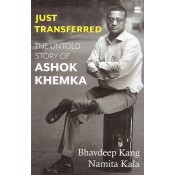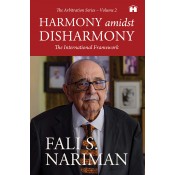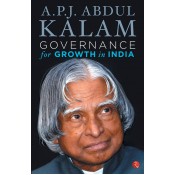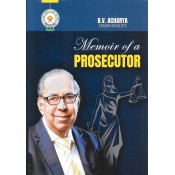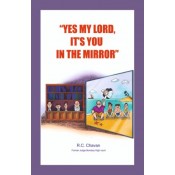It was a wise decision of the publishers to have come out with the 13th edition of the book since it would give a chance for the readers who had not read it when it was first published. With the inclination of many who are holding high positions at present being mostly to play safe and stay on the right side of politicians who are in power or are highly influential, there are few who would speak out boldly in utter disregard for the consequences they might face. Chagla had this rare quality and he could brush aside whatever tried to stop him from stating very clearly what he felt was right either while delivering judgments as Chief Justice of the Bombay High Court or in his public statements.
The most crucial test which Chagla had to face when it came to making a choice between remaining unwavering to what he firmly believed was right and submitting to ruthless authoritarianism came during the infamous Emergency declared in June 1975 in the wake of the Allahabad High Court judgment against Indira Gandhi. From what he told a correspondent of the Sunday Times of London, it was clear that Chagla did not for a moment doubt that Indira Gandhi would unhesitatingly respect the judgment and step down as Prime Minister as was expected of her. He was, therefore, shocked when she refused to do so, declared Emergency and imposed press censorship. Wholly undeterred by the fear of his being arrested, Chagla delivered
a speech at a meeting organised by the Civil Liberties Conference in Ahmedabad hitting out at Indira Gandhi's snuffing out of democracy in the country. He also rightly mentions how press censorship was counter-productive as ``it completely isolated her from the people. She sat in her house surrounded by her coterie and her sycophants and her powerful Intelligence Service fed her information which she liked to hear.''
The present edition of the book, running to over 500 pages, is full of absorbing accounts of the recollections of an eventful life which had few dull moments. It could more likely to have been moments of amusement than a sense of discomfiture when he was thrown in the company of Morarji Desai who expected him to be a teetotaller like himself and disapproved of Chagla's refusal to oblige him. His writing on Jinnah recalls how the man who tore the country apart by carving out Pakistan had earlier long been a dedicated nationalist committed to the unity of a secular India before he became an unrelenting communalist filled with a lust for power. He writes about his wife, Ruttie Jinnah, whose death when she was still young, removed the one influence which would have saved Jinnah from the religious and political intolerance he was drifting into.
Among the many recollections included in the book is Chagla's bow to the demand against participation in the celebration of the 60th birthday of Paul Robeson, the U.S. Black singer ``who had maligned the United States'' and the ``pontifical'' remarks of the Consul General about the complete misunderstanding that this would cause in the U.S. He was told that ``this was one more piece of evidence that we were heading straight for the Communist camp.'' Chagla remained unmoved and he was also backed by Nehru with his decision to go ahead with the birthday celebrations.
The long chapter on his tenure as Education Minister in the Government of India will be greatly cherished by readers particularly in Tamil Nadu for the firm stand he took on retaining English as the medium of instruction at the university level despite the opposition he had to face from the Hindi zealots. He took the same stand on English as the official language at the Centre. An embarrassment he had to face as External Affairs Minister was his having to disapprove of Reita Faria who had been crowned Miss World to entertain U.S. troops in South Vietnam. With India having objected to the presence of U.S. troops in South Vietnam he felt that it would not be proper to approve of Miss Faria's going there to entertain them. Chagla was indeed very pleased when she readily gave up her plan to go there.
The book is packed with recollections and had been written with warmth and would have the readers racing through the pages.
Bhartya Vidya Bhavan University's Roses In December - An Autography by M. C. Chagla
- Publisher: Bharatiya Vidya Bhavan
- Book Code: 9788172764470
- Availability: 2
-
Rs800.00
Related Books
LexisNexis's Courtroom Genius by Nani Palkhivala, Soli J Sorabjee, Arvind P Datar
If ever a colossus strode across the Indian legal arena, it was Nani Palkhivala. After a brillian..
Rs795.00
Before Memory Fades - An Autobiography by Fali S. Nariman, Hay House India
A revelatory, comprehensive and perceptive autobiography - candid, compelling and authoritative ..
Rs399.00
K. Natwar Singh's One Life is Not Enough - An Autobiography by Rupa Publications
One Life Is Not Enough an autobiography by K. Natwar Singh, formerMinister of Ex..
Rs500.00
Universal's All from Memory - An Autobiography by Adv. B. V. Acharya
This autobiography is by a Senior - Advocate, with more than 57 years of practice at the Bar. The..
Rs595.00
Nani Palkhivala God's Gift to India (Biography by a Friend) by Dharmendra Bhandari with Hema & Savitri Bhandari [HB]
About the Book : The Biography Of Nani Palkhivala By Shri Dharmendra Bhandari Is Truly A Trea..
Rs3,000.00
Law & Justice Publishing Co's Legends in Law Our Great Forebears [HB] by V. Sudhish Pai
Legends in Law Our Great Forebears ..
Rs1,395.00
EBC's Neither Roses Nor Thorns by H. R. Khanna [HB]
This book contains a story of a man who has a tale to share of some of the events in which he was ..
Rs595.00
Tags: Bhartya Vidya Bhavan University, Roses In December, M. C. Chagla

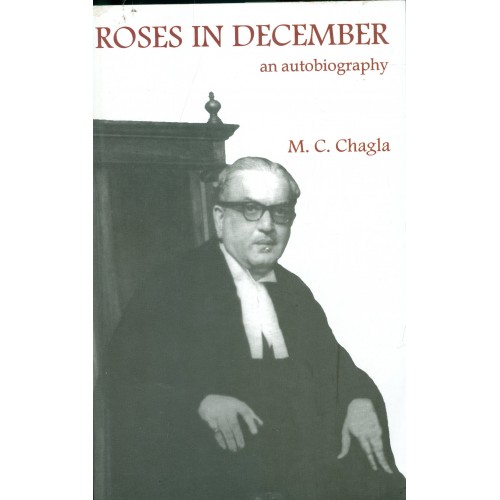
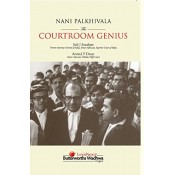
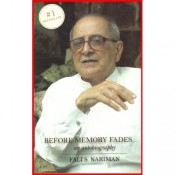
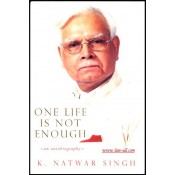
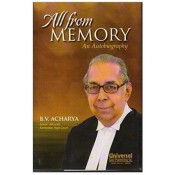
![Nani Palkhivala God's Gift to India (Biography by a Friend) by Dharmendra Bhandari with Hema & Savitri Bhandari [HB] Nani Palkhivala God's Gift to India (Biography by a Friend) by Dharmendra Bhandari with Hema & Savitri Bhandari [HB]](https://law-all.com/image/cache/data/Book Images/Dharmendra Bhandari Publishers/2016/9788192151229-175x175.jpg)
![Law & Justice Publishing Co's Legends in Law Our Great Forebears [HB] by V. Sudhish Pai Law & Justice Publishing Co's Legends in Law Our Great Forebears [HB] by V. Sudhish Pai](https://law-all.com/image/cache/catalog/data/Book Images/Law and Justice Publishing Co./2024/9789350352458-175x175.JPG)
![EBC's Neither Roses Nor Thorns by H. R. Khanna [HB] EBC's Neither Roses Nor Thorns by H. R. Khanna [HB]](https://law-all.com/image/cache/catalog/data/Book Images/EBC/2019/9789387487451-175x175.jpg)
![Eardley Norton: A Biography by Suresh Balakrishnan [2 HB Vols] | Old Madras Press Eardley Norton: A Biography by Suresh Balakrishnan [2 HB Vols] | Old Madras Press](https://law-all.com/image/cache/catalog/data/Book Images/Old Madras Press/2019/9788193733509-175x175.jpg)
![Harpercollins Publisher's Honour Bound: Adventure of an Indian Lawyer in the English Courts [HB] by Sarosh Zaiwalla Harpercollins Publisher's Honour Bound: Adventure of an Indian Lawyer in the English Courts [HB] by Sarosh Zaiwalla](https://law-all.com/image/cache/catalog/data/Book Images/Harpercollins Publishers India/2020/9789353573539-175x175.jpg)
